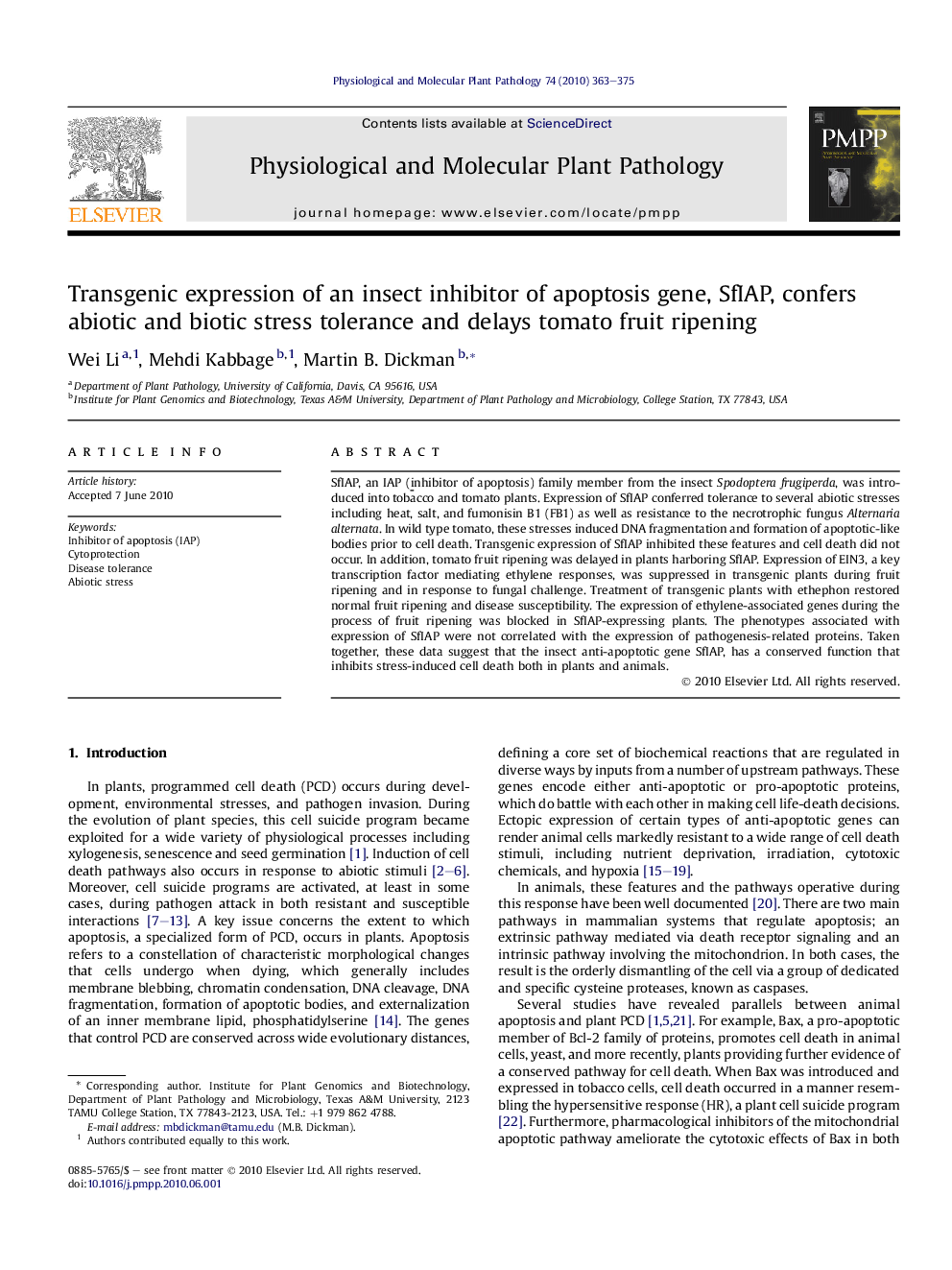| Article ID | Journal | Published Year | Pages | File Type |
|---|---|---|---|---|
| 2836503 | Physiological and Molecular Plant Pathology | 2010 | 13 Pages |
SfIAP, an IAP (inhibitor of apoptosis) family member from the insect Spodoptera frugiperda, was introduced into tobacco and tomato plants. Expression of SfIAP conferred tolerance to several abiotic stresses including heat, salt, and fumonisin B1 (FB1) as well as resistance to the necrotrophic fungus Alternaria alternata. In wild type tomato, these stresses induced DNA fragmentation and formation of apoptotic-like bodies prior to cell death. Transgenic expression of SfIAP inhibited these features and cell death did not occur. In addition, tomato fruit ripening was delayed in plants harboring SfIAP. Expression of EIN3, a key transcription factor mediating ethylene responses, was suppressed in transgenic plants during fruit ripening and in response to fungal challenge. Treatment of transgenic plants with ethephon restored normal fruit ripening and disease susceptibility. The expression of ethylene-associated genes during the process of fruit ripening was blocked in SfIAP-expressing plants. The phenotypes associated with expression of SfIAP were not correlated with the expression of pathogenesis-related proteins. Taken together, these data suggest that the insect anti-apoptotic gene SfIAP, has a conserved function that inhibits stress-induced cell death both in plants and animals.
